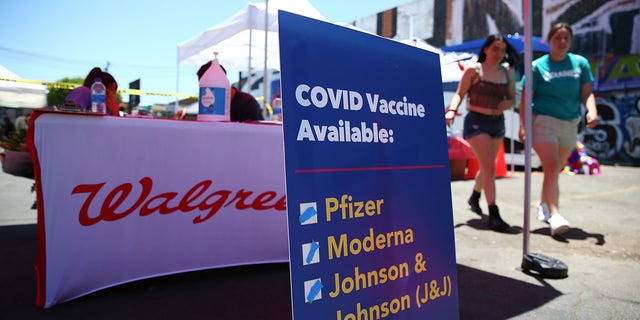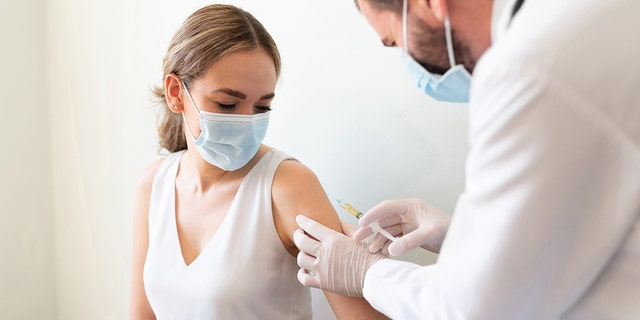Prior COVID infection provides just as much protection as vaccines, new study finds
A new study found that a previous COVID-19 infection offers at least the same level of protection as two doses of high-quality mRNA vaccines, such as Moderna and Pfizer-BioNTech.
Additionally, people who are infected with the virus may be protected from reinfection for 40 weeks or longer, the study found.
It was published in The Lancet on Feb. 16.
ARKANSAS MOM SAYS SCHOOL MASK MANDATES LED TO ‘CRUELTY AND DISCRIMINATION’ AGAINST HER DAUGHTER
Protection from reinfection was highest for the ancestral (original) strain of COVID-19 and the alpha, beta and delta variants, remaining at more than 78% after 40 weeks.
Protection was lower for the omicron BA.1 variant, which dropped to 36.1% in that same time frame.
When it comes to severe disease (hospitalization or death), protection was high across all variants, averaging 78% or higher for ancestral, alpha, beta, delta and omicron BA.1 at 40 weeks after infection.
The level of protection declined over time for all variants, but it dipped fastest for the omicron BA.1 variant.
The study, titled “Past SARS-CoV-2 infection protection against re-infection: a systematic review and meta-analysis,” was led by a group of researchers that make up the COVID-19 Forecasting Team.
Previous COVID-19 infection offers at least the same level of protection as two doses of high-quality mRNA vaccines.
“This finding also has important implications for the design of policies that restrict access to travel or venues or require vaccination for workers,” the study authors wrote.
“It supports the idea that those with a documented infection should be treated similarly to those who have been fully vaccinated with high-quality vaccines.”

Researchers analyzed a total of 65 studies across 19 countries.
The studies compared people who had previously tested positive for COVID-19 to those who had not been infected, up until Sept. 31, 2022.
When evaluating the infected cases, researchers considered the severity of symptoms, the variant of the virus and how long it had been since testing positive.
YEARLY COVID VACCINE AS PROPOSED BY FDA? ‘CART BEFORE THE HORSE,’ SAYS DOCTOR
The authors noted in the findings that this is the first study to “comprehensively assess natural immunity protection against COVID-19 reinfection by variant (primary infection and reinfection) and to evaluate waning immunity with time since primary infection.”
As of Feb. 15, the Centers for Disease Control and Prevention reported an average of 259,339 new COVID cases per week.
The study did have some limitations.
There was a low number of studies to evaluate, for example, and not much data was available beyond the 40-week mark.
CLICK HERE TO SIGN UP FOR OUR HEALTH NEWSLETTER
Additionally, studies relied on different methods to determine previous infection status, including testing for antibodies and looking at prior COVID-19 test results.

As of Feb. 15, the CDC reported an average of 259,339 new COVID cases per week.
The peak was 5.6 million cases per week in January 2022.
Only 16% of the U.S. population has received the updated booster dose for COVID-19 vaccines; 69% have completed a primary series of vaccines.
Read the full article Here


